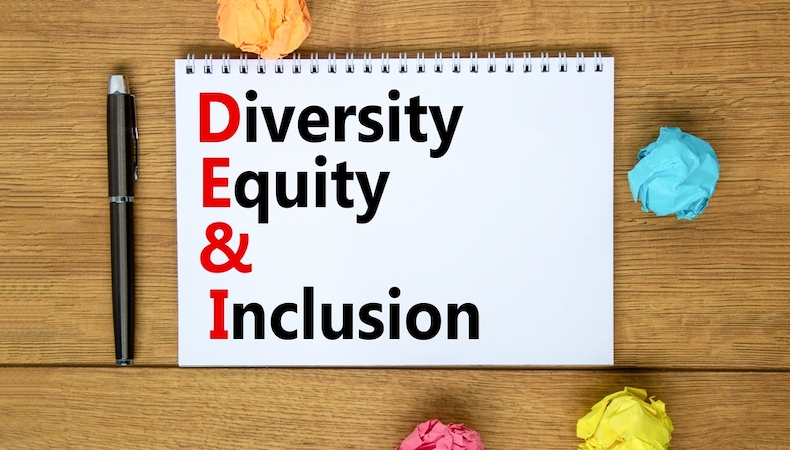How businesses can make their wellbeing strategies fairer and more inclusive
There has been a shift in how employers are designing wellbeing strategies, with a growing focus on providing life-stage health and wellbeing support, as well as fairness and inclusivity.
Fairness and inclusivity are part of the overall corporate diversity, equity, and inclusivity (DEI) journey for many firms and, as our recent research with REBA highlighted, fairness and inclusivity, together with sustainability and wellbeing, are now major drivers of decisions about employee benefits.
Organisations serious about making their wellbeing support more inclusive in 2024 need to ensure that DEI underpins every part of the wellbeing strategy, and is always considered when setting goals, implementing change, or developing new policies.
Supporting people at key life stages
There is a growing recognition that a one-size-fits-all benefits strategy does not work. Many companies instead are focusing on providing life-stage health support.
This approach recognises people have different health challenges throughout life. For example, women may need support around female cancers, as well as age-specific issues such as managing periods, the perimenopause, menopause, or fertility issues.
Men may need programmes to spot symptoms of diseases such as testicular cancer early or promote nutrition and fitness to prevent weight gain as they age.
The focus isn’t only on gender, it’s generational too. Younger people tend to be more focused on their health and mental wellbeing, whereas older people may have physical needs or challenges around caring for older parents. Also, neurodiverse people need different support in the workplace to someone who isn’t.
To be truly inclusive, firms must develop wellbeing strategies accordingly. Tailoring strategies is essential for making sure everyone feels included and supported at work and there is also a growing expectation from employees for fairness and inclusivity. Research in the UK and USA last year by Oliver Wyman Forum and The News Movement with 10,000 Gen Zers (born between 1997 and 2010) found they expect fair pay, inclusive policies, and transparency.
Generation Z
Gen Z employees openly discuss their mental health challenges, infertility and other once-taboo topics and demand benefits to address them. With Gen Z expected to account for nearly one-third of the workforce by 2030, employers must adapt their strategies to recruit and retain the best.
Five ways to put fairness and inclusivity centre stage.
1. Analyse where the organisation is now
Understanding the benefits and products most valued and used is key. This can be established by getting feedback and listening to employees and acting on any lessons learned.
2. Use data to inform the wellbeing strategy
Data is hugely important in identifying wellbeing and DEI issues. Employee data and data from providers can be used to spot trends and identify any changes needed. Employers also need to follow up after making changes to check things are working and if there any gaps in support.
3. Review product-based support
Product-based support has a place within the overall wellbeing strategy, so knowing what the firm already has such as employee assistance programmes, health screening or mental health apps and whether these are utilised is important. This enables gaps to be addressed and products that no one uses or values to be cancelled so the budget can be used elsewhere.
4. Look at alternative wellbeing support
Offering flexibility or time off can be just as important as introducing a new wellbeing product and it is generally cheaper to provide. Developing HR policies around life-stage events and giving people more flexibility or allow time off for things such as emergency treatments, fertility and menopause sends a clear message that employers are supportive.
5. Consider communication
How firms communicate can impact individuals, including the way they perceive how fair and inclusive the benefits strategy is.
Companies need to consider language, style, how the information is understood, even the colour of the text and the font as well as the most effective communication channels. Everyone absorbs information differently and communication style needs to reflect this.
To conclude
The importance of DEI on business culture and the wellbeing of employees cannot be ignored. A truly inclusive policy recognises everyone is different and encourages them to excel.
As we start 2024, we recommend businesses review their current wellbeing strategy and planning their goals for the next 12 months. This ideally would include a review of existing provision to establish whether it is inclusive and valued by employees. It should also be looked at in the context of their overall corporate DEI objectives.
Howden Employee Benefits & Wellbeing can help organisations review and design a fair and inclusive wellbeing strategy. For more information, click here.
Supplied by REBA Associate Member, Howden Employee Benefits
Howden provides insurance broking, risk management and claims consulting services, globally. We work with clients of all sizes to provide dedicated employee benefits & wellbeing consultancy.








